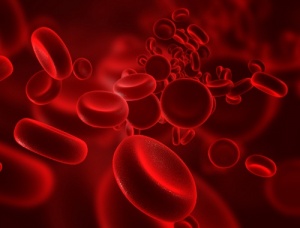Causes and Symptoms of Hypertension and Hypotension

Hypertension and hypotension are two conditions related to blood pressure (high and low). It’s extremely important to be mindful of both the symptoms of hypertension and hypotension. To determine if you have either, and how to treat it, we’re going to tell you about their causes and symptoms.
Causes of hypotension
Low blood pressure can be hereditary and is more common than high blood pressure, especially among thin, or young women. If your mother has had it, it’s very likely that you will too. But people don’t know about a lot of its symptoms, so it often goes untreated.
The conditions that can lead to low blood pressure are: hypothyroidism, Addison’s disease, hypopituitarism, cardiac insufficiencies, pericarditis, heart rhythm diseases or other heart diseases, several days of rest, and a liquid or salt deficiency.

Some medications can cause it too. These include: psychotropics (for insomnia or depression), irregular heartbeat, antihypertensives (for high blood pressure), diuretics, heart medications (for angina pectoris, for example), and vasodilators.
Read more: Mental Tools to Help Deal with Depression
Causes of hypertension
High blood pressure can develop at any point in your life, regardless of sex. It basically increases how much blood your heart pumps, and causes a contraction in the veins. It counts as a heart disease and can lead to heart attacks. The problem remains that 95% of hypertension cases don’t have naturally manifested causes.
A person might have high blood pressure from being overweight, a lack of physical activity, excessive salt, fat, or alcohol consumption, stress, and smoking. Chronic high blood pressure affects vital organs like the brain, heart, kidneys, and eyes. This can cause problems from heart failure to loss of vision, or heart attacks and strokes.

Hypertension can be hereditary, and men are more inclined to suffer from it, especially when over the age of 40, overweight, and cholesterol levels are direct causes of the disease.
Symptoms of hypotension
In cases of low blood pressure, you can have one or several symptoms. Things like exhaustion, a need to sleep longer, worsened physical state, problems concentrating, depression, apathy, sleep disorders, insomnia, lack of energy, asthenia, lightheaded feeling, lack of strength, taking hours to fully wake up in the morning, quickly becoming exhausted, getting cold more (especially in the hands and feet), and paleness (especially on the face).
The circulatory symptoms of low blood pressure come up when the brain isn’t getting enough blood. This can happen on hot days, or if you’re out in the sun at noon. Fatigue and weakness are also very common and can start after a meal, when blood builds up in the stomach.
Learn more: How to Improve Your Diet to Treat Low Blood Pressure

Dizziness is another common symptom of hypotension. There’s also severe headache, fainting, loss of consciousness, blurry vision, and vision disorders. These are a clear sign that something isn’t right.
Your heart might start to beat faster (tachycardia), your veins might contract (pale skin and cold hands and feet), and you might have cold sweats or fainting spells (your brain isn’t getting enough oxygen and can’t control your muscles).
Symptoms of hypertension
There are also plenty of symptoms of hypertension. You have to pay close attention for any warning signs from your body. But the first symptoms of hypertension aren’t always noticeable. They can be vague, and sometimes develop slowly.
Symptoms of hypertension include difficulty sleeping at night, minor irritability, insomnia, restless sleep, recurring nightmares, waking up often at night, auditory problems like tinnitus, buzzing in the ear, etc.

Intense headaches or dizziness might be a sign of hypertension. This is especially true if you’re dealing with a lot of stress, nerves, or anxiety. Women over 50 show symptoms of hypertension that are similar to menopause (mood swings, breathing problems, headaches, dizziness). This is why many don’t get the appropriate treatment. Middle-aged men can also have symptoms associated with erectile dysfunction.
Chest pain, shortness of breath, tightness in the chest, or feeling like you can’t breathe are all things that need medical attention. High blood pressure has a strong link to heart problems, so you need to make sure everything is alright. Irregular heartbeat can also cause high blood pressure.
This text is provided for informational purposes only and does not replace consultation with a professional. If in doubt, consult your specialist.








